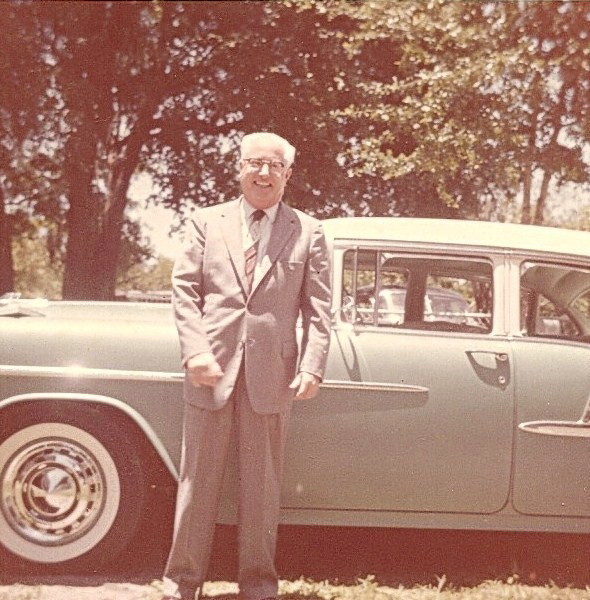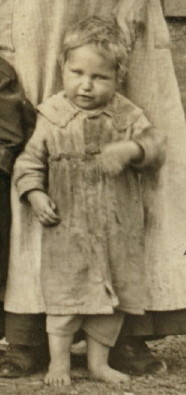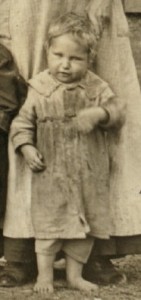
“Whenever there was anything that had to do with the church or the school, my daddy was the one sitting out there waiting for me. When my brother or I was out on an outing with the kids, we were always late coming back, and he would sit there and wait and never complain about it. It didn’t make any difference how tired he was.” -Carolyn Young, daughter of Jesse Young
Jesse was the baby of the family. He was apparently born about six months before his father died. Finding him was as difficult as finding Elizabeth. For a while, the only thing I knew was that he moved to Orlando, Florida, possibly in the 1930s, at least according to what several Young family descendants told me. In the 1930 census, a man named Jessie (not Jesse) Young was listed as living in Orlando with the family of John and Rosa Chitty. He was born in Georgia about 1907. He was working as a truck driver. But was this man the right one, or was it just a coincidence? For at least a month, I could find nothing that would answer that question.
And then I stumbled upon an online posting of some of the Orlando city directories. Listed in the 1937 directory were W. Jesse Young and wife A. Mildred Young, living at 731 Golf Avenue. In the 1941 directory, they were listed as Walter J. Young and Alice M. Young, living at 11 South Parramore. That led me to the following listing in the Florida Death Index: Walter Jesse Young, born in 1907, died November 1973, in Orlando. In a few more minutes, I found his wife in the Social Security Death Index: Alice M. Young, born March 20, 1912, died February 1987, in Orlando. Finally, I found Alice’s obituary. It said in part: “Born in Ashburn, Ga., she moved to Orlando from Georgia in 1933. Survivors include son, Jesse Selwyn; and daughter, Carolyn Young Bufis, both of Orlando.”
But I still wasn’t totally certain that I had found the correct Jesse. I tried to find the two children, but nothing turned up. I noted that the daughter’s last name was Bufis, which seemed like an uncommon name, so I looked up all the phone listings for Bufis in Florida. I found only three. One was a Gerald Bufis. I called him, and he referred me to his brother, Michael. I called him, and he told me that he was Carolyn’s first husband, that I had the correct Jesse. He asked me to email him the photos of Jesse and his family, and my contact information. He said he would forward the email to his two sons by Carolyn. The next day, I received the following email:
“I am Dana Bufis, grandson of Walter Jesse Young. I am so happy that you have reached out with the photos of my family. I have no heritage to speak of on my grandfather Jesse’s side of the family. I was practically raised by him and my grandmother. His death in 1973 was too early for me. He was a very good man who never was successful in the ways most people measure success. He was loved and respected. He worked hard and provided for his family, and he is my hero. You can’t even for a moment begin to understand how this news has made me feel. I have found a piece of myself that has long been lost.”
The next day, I called Dana Bufis, his brother Michael, and Carolyn Young, Jesse’s daughter.
Walter Jesse Young was born on June 1, 1907. He was discharged from the orphan home on November 6, 1911, at the age of four, reuniting with his brother Seaborn, who lived with the J. Walter White family. His birth name may have been Andrew Jesse, after his father. Perhaps J. Walter White, the man who raised him, changed Jesse’s first name to Walter.
He stayed with the Whites until at least 1920, but left in his teens and traveled across the country looking for work. He lived briefly in Orlando, then moved to Ashburn and lived with his mother Catherine, in 1928 or 1929. He married Alice Mildred Clower (called Mildred) in 1933 and lived the rest of his life in Orlando. Jesse died on November 24, 1973, at the age of 66. I could not locate his obituary. Mildred died on February 7, 1987, at the age of 74.
Edited interview with Carolyn Young (CY), daughter of Jesse Young. Interview conducted by Joe Manning (JM) on April 21, 2011.
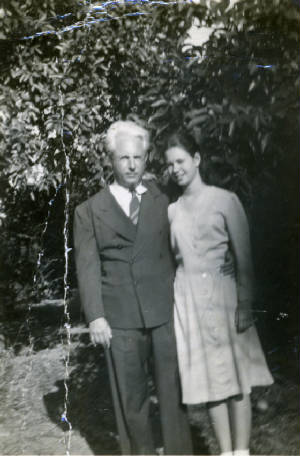
JM: What year were you born?
CY: 1934.
JM: What was your father doing for a living at that time?
CY: I’m not sure. I remember that he had a paper route for six years. He went and picked them up and delivered them to the towns outside of the city. It was a very time-consuming job.
JM: What is the first house you remember living in?
CY: I was living on Oberlin Avenue, close to the Dubstread Golf Club. It was near Winter Park, where rich people came to live in the winter. There were average people living there also. My father purchased the house and sold it after a limited period of time. I was preschool age when this occurred. My father was employed by the Orlando Sentinel Star Newspaper Company, and he delivered newspapers.
JM: How many other children did your parents have?
CY: My brother, Jesse Selwyn, born in 1937, and Walter Jesse, who died at birth.
JM: In the 1936 city directory, your parents’ address was 515 W Central Avenue.
CY: I remember living on Central Avenue when I was in the 2nd grade.
JM: In 1937, you were living at 731 Golf View St.
CY: My mother told me we lived there.
JM: In 1938, his occupation is listed as newspaper carrier, at the same address.
CY: I remember him delivering papers when we lived there.
JM: In 1941, he is still delivering newspapers, and he lives at 11 South Parramore.
CY: We moved a lot. My mother didn’t want to stay in one place for any length of time. We lived in that house on Parramore twice. After World War II, in 1947, many discharged servicemen brought their families to Central Florida. A housing shortage developed and we had to move immediately. There was not any available housing of any kind to rent in the entire area of Orlando or surrounding areas. My father solved this huge problem for us by purchasing a house on East Harding Street in Orlando. His ability to come up with solutions to problems has influenced many of my decisions.
JM: How long did he live there?
CY: For the rest of his life.
JM: In the 1948 city directory, he was listed as working for an insurance company.
CY: That’s right. He sold insurance for a while. He went house to house and knocked on doors. I remember him coming home with his books and making sure he had payment from his clients. He balanced his books every day by hand.
JM: Where else did your father work?
CY: He was a salesman for a furniture store for a long time. He also worked for Western Auto. He worked there after he was forced to retire. He sold appliances.
JM: What was your father like?
CY: He was a lot of fun. He liked to act silly, and he was very friendly. Everybody in town knew him. My father cooked breakfast every morning when I grew up. He had solid white hair. He already had a lot of white hair when he married my mother. He read the Bible a lot. He was a Sunday school teacher. He was strict, but he was not a disciplinarian. Because of the way he was treated when he grew up, he did not want to do that to his children. My mother was very demanding, but he did everything he could to please her. He bought her all kinds of gifts.
He was a good friend. There was a difficult period of time after I got a divorce. I was living at home, and I started going with Daddy to the grocery store every Saturday night. If I had something else to do and I couldn’t be with him, he was mad. We did that for several years, and we had the best time. We would cut up and act silly in the store. He was always in the kitchen helping us cook. My mother was a wonderful cook, but she always needed help. She liked to make all kinds of salads, so there were a lot of things to cut and chop. My daddy and I would get in there and cut it all up. On all the holidays and special occasions such as birthdays, he would come home with a huge box of Whitman’s Sampler.
He worked hard, so he didn’t have a lot of time to spend with us. He took me to school in the mornings when I was in high school, and we talked a little. But I wasn’t in the truck with him very long when I was in high school because it was close by. All of my social activities were with the church. We would go on picnics with the other young people in the church. I was always active in that. I played the piano at the church, and my brother played the trumpet. I sang in the glee club at the school, and my brother played in the school band. Whenever there was anything that had to do with the church or the school, my daddy was the one sitting out there waiting for me. When my brother or I was out on an outing with the kids, we were always late coming back, and he would sit there and wait and never complain about it. It didn’t make any difference how tired he was. He was always kind. He could get mad, but he was not violent, and it was over pretty quickly.
JM: Was your father in good health most of his life?
CY: Yes, until he got prostate cancer. He had surgery in July of 1973, and died at the end of November. We took care of him at home. We had to feed him baby food. On Thanksgiving, I baked a turkey, and we had a table full of good things to eat. We pulled his bed up to the end of the table and told him that we were having Thanksgiving dinner, and explained everything on the table. We knew that he could hear, because sometimes he would make a noise. He died a few days later.
JM: Did your father ever talk about being given up by his mother, being sent to the orphanage, and living with the Whites?
CY: He said that the children were taken to the orphanage when he was two years old. All the children that the orphanage would take went there. There was an age limit. He stayed there two years. He was four years old when he was taken by the Whites. Walter White came and took his brother Seaborn, but when Seaborn went home with them, he cried for his ‘Bud.’ He wanted his Bud. He had to have his Bud. And they didn’t know who Bud was. So finally, they took Seaborn back to the orphan home to find out who Bud was. Seaborn found my daddy and took him by his hand and brought him to the Whites and said, ‘This is my Bud.’ The Whites took my father at that time. My father liked being at the orphanage and remembered the children playing outside. He talked about the children running to the fence and watching people come in, and they wondered if those people would take a child.
Seaborn came to see Daddy while he was in the hospital in July of 1973. They talked about the things they did as children, and enjoyed the visit. When my daddy died, Seaborn came, but he got sick and couldn’t go the funeral. My son Dana was being watched by a lady. When they were getting ready to go to the church, Dana said that Seaborn fell to the ground and couldn’t get up. They said he had a heart attack. The ambulance came, and they wanted to take him to the hospital, but he refused to go.
JM: Did Jesse and Seaborn keep in touch with each other all through life?
CY: Seaborn and his wife and kids came to Orlando and stayed for a while. I was a teenager then. He rented a house a few streets over, but he couldn’t find a job that would pay enough to allow him to live there. It was more expensive in Orlando than in Baxley (Georgia), where he had been living. He stayed only a few months.
JM: Did your father ever talk about any of his other brothers and sisters?
CY: He mentioned Mary. My brother said that my father talked about Eddie Lou, and that he loved her very much.
JM: Did he see her often?
CY: No. My father did not see the family when I was growing up. Before he was married, my father went to look for his mother. He found Catherine in Ashburn (Georgia). He stayed with her for a while and worked as an ice wagon driver. He met my mother at a party at my mother’s relatives’ house in Ashburn. They married in Ashburn on July 14, 1933.
JM: What kind of relationship did your father have with his mother when he lived with her?
CY: I think it was okay. But my mother didn’t like her. She didn’t like anyone in my father’s family, because they were poor people. My mother didn’t come from a poor family.
JM: Did your father ever see his mother again after he married and went back to Orlando?
CY: Catherine came and stayed with us when I was about three years old. My mother had lost the baby, and she was pregnant with Selwyn. She was not supposed to have any more children, so the doctor said she had to stay in bed. She had to have somebody take care of me and help around the house, so Catherine stayed for a while. Then an incident occurred between her and my mother. My mother wanted her sister to come and take care of me instead, so Catherine left.
JM: Was that the last time that your father saw his mother?
CY: I believe so. He did not go anywhere to visit his family, except one time when we went to visit the Whites. Walter died when I was about eight years old. Mrs. White had already passed away. Every year, my mother and brother and I went to Ashburn to visit her family. We stayed with them, but we didn’t go to visit any other relatives, even though they were close by.
JM: Did your father have an affectionate relationship with the Whites after he left their home?
CY: After my father married, his relationship with them was okay. Whatever had occurred that he didn’t like had been forgiven, I guess. He said that Mr. White was not good to him. He didn’t like the way he was treated. I don’t think Mr. White liked him, but he liked Seaborn. Daddy left them when he was 13, and then the Whites found him and brought him back, and he stayed for a while longer. He did not get to finish high school, something he always regretted. He would go back and visit them from time to time, but he wouldn’t stay.
My father was a hobo in the 1920s. He took off and went to the west coast. He stayed in Tacoma, Washington for a while. He also went up to Canada for a short time and worked for a cattle rancher, but he didn’t want to do that. He didn’t like working on a farm.
In the past few years, I have had such a craving to find out about my father’s family. I knew that his father had died young, and I knew about the children going to the orphanage, but nothing else. Whenever my father would start talking about his family, my mother always stopped him. She didn’t want to hear a thing about it. My mother didn’t want to have anything to do with my father’s family. She expected so much more than we had, because so many people in her family had achieved so much more. When her mother came to live with us, I heard all the stories about her family, how great and wonderful they were. But I always had that gnawing feeling inside of me to know more about my father.
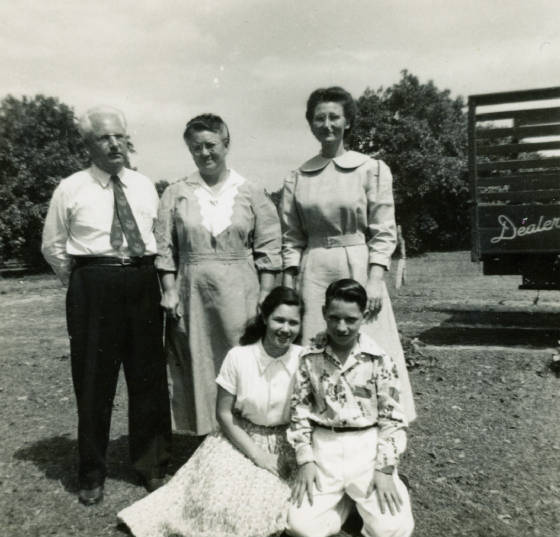
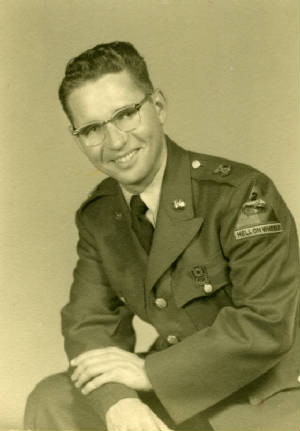
Edited interview with Dana Bufis (DB), grandson of Jesse Young. Interview conducted by Joe Manning (JM) on March 31, 2011.
JM: What did you think of the photo of your grandfather?
DB: I was very surprised to see the photo, because I don’t know much about my grandfather’s background. I don’t even know the name of his father, my great-grandfather.
JM: He was Andrew Jesse Young. He died in 1907. I think your grandfather was named after him.
DB: I was told that my grandfather went to an orphanage in Macon. I remember the family talking about the Whites, the couple that adopted my grandfather and his brother Seaborn. I know that they worked the boys on their farm.
JM: They probably were not officially adopted, because they kept the name Young. Did your grandfather ever mention his mother?
DB: Not to me. But I learned later that he lived with her for a short time. He found her in Ashburn (Georgia). That was about the time he met my grandmother. He was delivering ice for a living then. My grandmother’s mother, Ruby Hill Clower, had a farm outside of Ashburn. My grandfather was delivering ice to the farm, and he met my grandmother and thought she was the prettiest thing he’d ever seen. I believe they married in 1932.
JM: He was living in Orlando in 1930, according to the census, and he was still single.
DB: I believe he went to Orlando, and then came back and lived with his mother, and that’s when he met my grandmother. Then they went back to Orlando.
JM: What year were you born?
DB: 1966.
JM: So you didn’t know your grandfather very long. You would have been seven when he died.
DB: My mom had split up with my father. She had four children. My grandparents took care of me a lot. When I was a toddler, I used to run around and squeal and flex my muscles, and my grandfather just took to it. In fact, he and my grandmother asked if they could adopt me. I spent a tremendous amount of time with them. Until I was five years old, I practically lived with them. My mother lived close by.
My grandfather was a Sunday school teacher, and I remember him studying his Bible. He took me everywhere he went. If he didn’t, I pitched a fit. I remember going to church, and I would want to ride horsey on his knee during the service. I was raised in the church that he helped found. His name is on the cornerstone. Being a Pentecostal, when he prayed, he would speak in tongues. He was a very holy man. He would take me to church with him in the evenings, and I would either go to sleep on the pew, or I would sit up and watch the whole proceeding, which was full of people praying and speaking in tongues. Because of my grandfather’s influence, I can quote chapters of the Bible from memory. He was such a great role model.
I remember him cutting up dancing. He loved to dance. He was very flamboyant. He was always laughing and being upbeat. Later on I found out that he could also get very angry, which was news to me, because I don’t remember him ever being angry. My grandfather’s hair turned white really early. I was told that at the age of 25, he had strips of white hair on both sides of his head. My brother Mike takes after him, because his hair has been white for years.
My grandfather was a salesman for a store called Young’s Furniture, no relation. He held two or three jobs at times. He had a newspaper route for a long time. He was a janitor at Robert E. Lee Junior High School. He also was a salesman for Western Auto. Something funny happened once when we were in the store. I told my grandfather that I wanted something that was up on a shelf. He said, ‘That’s too high.’ And I said, ‘Well, then get a ladder and go up and get it.’ But he was talking about a high price, not that it was too high up.
Not too long before my grandfather died, a friend named Mike asked him, ‘Is there anything you want?’ At that point, he had cancer and he knew he was going to die. The hospital bed had been set up in the front room of the house. My grandfather told him that he wanted a Thompson Chain Reference Bible. And Mike came back later with that bible. It was maroon.
JM: When he died, what kind of an impact did it have on you?
DB: It destroyed me. I totally changed. My mother said she saw a kid that was outgoing make a total reversal. I remember the night that he died. I was sent to a neighbor’s house across the street. His brother Seaborn was at the funeral, but he took ill. He was getting ready to drive to the church when he was stricken. The ambulance came, and we were delayed. By the time we got to the church, it was so full that I had to stand in the back. Then we went to Woodlawn Cemetery and they buried him.
He and I were like two peas in a pod. I remember the robe that he wore. I remember his smell. I remember hugging his leg as he cooked breakfast.
**************************
Excerpts from an interview with Michael Bufis, grandson of Jesse Young. Interview conducted by Joe Manning on March 26, 2011.
“Jesse Young was my father figure. My father and mother divorced when I was about three years old. Therefore, my father wasn’t with us. We lived close to my grandparents and my grandmother babysat for us children while my mother worked. We attended the church where my grandfather was one of the founders. That’s the Church of God in Orlando, a Pentecostal church. In fact, there is a bronze marker on the corner of the building, and his name is on there: Walter Jesse Young. He taught Sunday school classes and the pastor attended his classes as well.”
“He was rather resourceful. He had a cabinet shelf full of baby food jars that contained different sizes of screws, nails, tacks, nuts and washers, all of them labeled. He reused everything, one way or another.”
“I remember that he worked long hours when I was growing up. He worked for a Western Auto store. They were an auto repair shop that also sold various household items and large appliances such as washers and dryers. He was in sales. He also had to go out and collect on the accounts when people were behind on their payments. My mother told me that he sold furniture prior to working for Western Auto.”
“He was a very humble, God-fearing and God-loving man. He insisted on us going to church Sunday mornings, Sunday nights and Wednesday nights. I was raised in the church because of him. On Saturday nights, he would study his bible to prepare for teaching Sunday school the next morning. I remember him praying a lot. He would lead us as a family in prayer.”
“When my grandfather passed away, the funeral service was at his church. The capacity was roughly 300, and it was packed and overflowing. I had never seen it that crowded in my life. He obviously touched a lot of people.”
